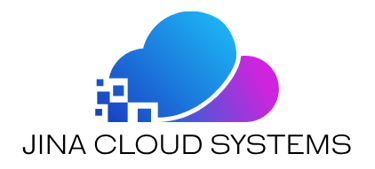The Truth About the Current US IT Job Market: Trends, Shifts & Opportunities
The US IT job market is evolving—not crashing. This article highlights the latest hiring trends, in-demand roles, and how recruiters, companies, and tech professionals can stay ahead in today’s shifting landscape.
7/27/20253 min read


The US IT job market has been in the spotlight over the last two years — and not always for the right reasons. Headlines about mass layoffs from Big Tech giants like Meta, Google, and Amazon have led many to assume that the entire sector is in decline. But the reality is more nuanced — and far more promising for both tech professionals and companies hiring with the right strategy.
In this article, we dive into the real state of the US IT job market, the fastest-growing roles, current hiring patterns, and how recruiters, job seekers, and businesses can adapt to the evolving landscape.
Tech Layoffs: A Correction, Not a Collapse
While it’s true that over 260,000 tech employees were laid off globally in 2023–2024, most of these came from overhiring during the pandemic tech boom. As companies now refocus on profitability and efficiency, they're no longer chasing headcount — but they are still hiring strategically.
🔹 According to CompTIA’s latest report, the US tech unemployment rate is just 2.2%, significantly below the national average (~4%).
🔹 Job postings for IT roles in non-tech industries like healthcare, logistics, and retail have increased by 7–12% year-over-year.
In-Demand IT Roles in 2025
Despite hiring slowdowns in some sectors, demand remains strong for specialized, high-impact IT roles, especially in AI, cloud, and cybersecurity.
Top Roles Hiring Now:
DevOps & Cloud Engineers (AWS, Azure, Terraform, Kubernetes)
Machine Learning & AI Engineers
Data Engineers & Architects (Snowflake, dbt, Spark)
Cybersecurity Analysts & Architects
MLOps Engineers & Prompt Engineers
Full-Stack Developers with TypeScript, React, and Node.js
According to Dice Tech Jobs Report, Cloud Engineers earn an average of $148,000/year, while Cybersecurity professionals command $130,000+.
The Shift from Full-Time to Contract Hiring
One of the biggest shifts in the current job market is the move away from full-time employment toward contract-based and project-based work.
Companies are avoiding long-term commitments due to budget constraints.
Contractors offer flexibility, quicker onboarding, and lower total cost.
IT consulting and staffing firms are seeing an uptick in demand for contract staffing, especially in roles related to digital transformation and cloud migration.
📊 48% of CIOs say they plan to increase contract hiring in 2025, according to Gartner.
Cybersecurity and AI: The Twin Pillars of 2025 Hiring
As companies race to adopt AI, they are also increasingly vulnerable to cybersecurity threats — making both fields top hiring priorities.
Key stats:
Cybersecurity job postings increased by 28% YoY in Q2 2025 (CyberSeek)
AI-related roles are projected to grow by 36% between 2024–2028 (US Bureau of Labor Statistics)
Roles like Prompt Engineers, once niche, are now paying up to $200K/year in top firms
Where Hiring Has Slowed
While the market is still healthy overall, some roles are seeing reduced demand:
Generalist front-end developers (React-only skill sets are no longer enough)
Junior-level roles (companies expect more self-sufficiency from hires)
Manual QA testers (being replaced by automated testing frameworks)
Key Trends to Watch
Rise of Hybrid Teams: Companies prefer nearshore/offshore hybrid teams with cost-effective models.
Return to Office (Partially): Fully remote roles are decreasing slightly; hybrid work is now the norm.
Niche Tech Skills Win: Candidates with specialization in security, data, and automation have the edge.
Tech in Non-Tech Sectors: Retail, manufacturing, and healthcare are still actively building internal tech teams.
What This Means for:
Recruiters
Focus on niche hiring pipelines (e.g., Cloud DevOps or Cybersecurity only)
Offer contract staffing and flexible hiring solutions to clients
Build candidate communities with upskilling support
Job Seekers
Upskill in AI, cloud, or security — certifications add serious value
Polish resumes and LinkedIn profiles with role-specific keywords
Be open to contract roles; many convert to full-time in 3–6 months
Businesses
Leverage specialized consulting firms for faster talent access
Invest in short-term projects with skilled contractors vs. hiring full-time
Consider global hiring models for cost and availability advantages
Final Thought
The US IT job market is not broken — it’s evolving. Companies are hiring smarter. Talent is expected to be more specialized. And the path to success lies in adapting to these shifts, whether you're hiring, consulting, or job-hunting.
Jina Cloud Systems
651 N. Highway 183 #335 #411 Leander, TX, 78641
Recruitment
hr@jinacloud.com
© 2025. All rights reserved.
